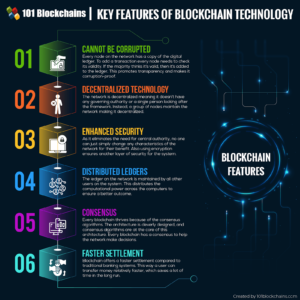The United Nations Development Programme recently reported that the ongoing pandemic is “hitting hard on all of human development’s constitutive elements”, such as loss of income at a scale not seen since the Great Depression, loss of lives or damage to well-being at an astounding scale, disrupted access to education, all “likely increasing poverty and inequalities at a global scale”, making achievement of the Sustainable Development Goals even more urgent.

Photo: Castorly Stock from Pexels
Over the coming months, PositiveBlockchain will launch a broad selection of interview series related to how companies in the blockchain for social impact ecosystem are adapting their solutions or projects in this next phase of sustainable development. The series will focus on interviewing inspiring change-makers from different organisations, who provide inspiration and insights on how to address the multi-faceted and far-reaching socio-economic development challenges intensified by the Covid-19 pandemic.
Today, we talk to Kevin Pettit, Chief Operating Officer of Proof of Impact, a company providing verified impact investing solutions.

Kevin Pettit, Chief Operating Officer, brings infectious energy to everything he does. He brings to bear a strong background in blockchain, finance and technology to the Proof of Impact team. His successful track record of launching and accelerating financial systems is fueled by his unyielding commitment towards advancing high-performance teams to rapidly deliver growth. His deep passion for social impact led him here and his desire to rigorously disrupt the impact space as we know it keeps him going.
Can you first tell us a little bit about Proof of Impact outside the current crisis: Which problem is it tackling, how does it work and what impact does it make? How did you get to work on it?
At our core, Proof of Impact is a technology company that enables the tracking, measurement, and evaluation of impact investments. To dive in a bit deeper, we have developed a data collection and verification engine that is radically redefining impact as we know it – by using transparent and meaningful metrics to create natural alignment between purpose and profit.
We quickly saw that the hearts and minds of consumers and investors are becoming more impact-minded, yet the tools to bring those visions to life lag behind. Frustrated with the conversations being had but little to no outcomes, we decided to tackle this issue head on. Backed by co-founders who are serial impact entrepreneurs, one with deep expertise in investment banking, we listened to the market and committed ourselves to developing the technological innovations needed to make investing in impact tangible, transparent, and verifiable.
Focused on four key areas – impact investing, responsible manufacturing, philanthropic giving, and corporate social responsibility – our solution is tailored to the specific needs of those looking for new age digitized investment products. We proudly provide a customizable technology platform and visibility into key impact performance data to help fund managers and impact-minded professionals make more conscious decisions in everyday life.

Photo: Proof of Impact supporting maternal health services provided in Africa.
How has the Covid-19 crisis affected your life and work so far?
Let’s be honest. COVID-19 has left a lot of people feeling alone and helpless. Many of us felt ‘stuck,’ with little ability to take control and determine how to make a meaningful difference.
Logistically speaking, we built Proof of Impact to be a fully remote company, so daily life in that regard did not change too drastically, however the feeling of helplessness is something that my team – and mostly every team around the globe – has felt. We see this tidal wave on the news of how bad things are, and it’s hard to determine what our role is in helping be part of the solution.
Things took a turn for the positive once my team and I decided to squarely focus on using our technology to give people an option to participate in the solution. That’s where the dramatic shift occurred. Our conversations changed and became highly action oriented. We creatively found positive ways to come together – from daily Zoom workouts which forced us to take a break from work to having check-ins with one another around how we were truly doing – we rallied together and have found ways to focus on the positive in an otherwise bleak time.
How do you think the crisis will affect our life and work further down the line?
COVID-19 has already accelerated the need for greater purpose beyond ourselves. Business as usual simply no longer exists. No longer can we ignore the consequences of doing things in the same ways, with no regard for the greater good.
We can easily go down the line and discuss the negative ways COVID is – and will – impact society, but I like to believe that this will enable most people to tap into a higher level of consciousness. Prior to this global pandemic and subsequent crisis, impact was something of a self-realization prophecy, whereas now we’ve realized that doing good is much more of a basic human need than most once thought.
I’d like to think the way we make decisions going forward has forever changed, in a very meaningful way.

Photo: In one of the projects supported by Proof of Impact, meals are being packed up and delivered to frontline healthcare workers.
In light of COVID19, how have you adapted work? Could you share examples of new or additional challenges you are working on, or of adjustments / additions you have made to your solutions related to the crisis?
When COVID appeared, the team and I realized rather rapidly that we had the ability to be relevant in a genuinely meaningful way. We sent ourselves into overdrive to address the crisis head on, by pointing our impact tracking and verification technology to track impact related to COVID relief.
For example, Proof of Impact partnered with United 4 Longevity (U4L), a new charitable foundation that collects funds to underwrite the donation of clean, nutritious foods to healthcare workers who are currently risking their lives in the battle against COVID-19. Proof of Impact supported U4L in measuring and verifying the impact of their efforts: the delivery of meals, snack packs, and fast bars to hospital staff and nurses at their homes to keep their bodies and immune systems healthy so they can be at their best to help fight this disease.
For each meal, snack packs, and fast bar delivered, Proof of Impact independently verifies the deliveries through a series of supporting data points, such as timestamps, delivery locations, photos of the deliveries themselves, and shipment tracking identification numbers. Through this partnership, U4L is able to add confidence from a third party verifier that their measurable impact has been achieved, while at the same time creating a more engaging giving experience for their donors.
As such, we’re balancing developing solutions that address the short-term crisis alongside long-term issues – such as Sustainable Development Goals for social and environmental good – that we have the power to effect. It’s satisfying to be able to use the impact tracking for meals for frontline healthcare heroes, which will be an extension of the capabilities of our platform for tracking the impact of future programs.
Different, yet the same.
How are you planning to develop it further? What are the biggest obstacles you need to overcome?
Impact investors have shown up in this new reality. As leaders in our space, we’re constantly asking ourselves how do we develop the necessary tools to help them deliver on their commitments to become more sustainable. It’s our primary goal to empower investors with the right metrics to measure the success of their investments. If they can more efficiently and confidently track their impact, then they can optimize how funds are deployed in order to do the most good.
Looking towards the future, the work we’re doing now sets us up for data-driven investment products that will make it easier for investors to engrain impact into the financial products themselves. The challenge here is mostly around impact data collection – what to track, how to track, and how to measure – alongside educating investors around what is truly possible when you have real-time impact data. Imagine a world in which you have real-time impact data to drive decisions?
The possibilities are endless – and tremendously powerful.
Where do you see the biggest opportunities of blockchain and other technologies in relation to Covid-19? Where do you see risks?
At Proof of Impact, we use blockchain to keep a transparent and immutable record of data as “proof” that social or environmental good has been achieved.The transparency and confidence that blockchain technology instils is hard to beat. It’s powerful to know – with certainty – that impact occurred. The trust that secure data via the blockchain delivers affords the opportunity to create smart, automated investment structures – such as performance-based investments.
As we collect more data around the benefits achieved in communities globally, it becomes increasingly important to take strong steps towards protecting personal privacy and data, because once it is minted on the blockchain, there is no return.
How can we best follow your work?
You can follow Kevin on LinkedIn: https://www.linkedin.com/in/kevindeanpettit/ and Proof of Impact: www.proofofimpact.com.
Kevin, many thanks for your insights and inspirations, and for the great work you are doing!
Learn more about Proof of Impact’s selection of programs aiming to support communities particularly hard-hit by the Covid-19 pandemic. They range from providing recycled soap to at-risk communities around the world, supporting the U.S. restaurant and hospitality industry by funding their food provisions for under-represented communities during a lockdown, funding repair teams in Kenya to secure water systems in the drought-prone regions, to funding basic PPE and reliable sanitation products for families across South Africa.
]]>
Digital Sovereignty and Inequality
Can we agree that at the halfway point, it has been a fairly comprehensive and eventful year so far? With every month comes another potentially ominous sign reinforcing the status of the year 2020 as a rupture point in global history. Bitcoin has also had a full-blooded year, going through the anxious sell-off, lots of global news regarding Central Bank Digital Currency (CBDC), an anti-climatic ‘Halvening’, a DeFi explosion and finally a relative price stabilization. Bitcoin has also seen further adoption with the likes of Raoul Pal and Paul Tudor Jones publicly endorsing Bitcoin within mainstream the financial space and in so doing positioning Bitcoin as the fastest horse ‘outside of system’. These are just two characters of the Bitcoin landscape but they are part of a normalization of Bitcoin as an asset which has seen a turbulent volatility in price. What hasn’t changed much however is the idea of Bitcoin and Blockchain as a burgeoning counter movement within an increasingly corporate business model of surveillance capitalism. The concept of out of the system money which works against corporate surveillance opens up conversations such as Inequality and resistance. I want to be provocative in this piece and ask if Bitcoin, a piece of computer code, can really help resolve inequalities entrenched within today’s financial and social system? It would seem odd at first glance and perhaps impossible in some ways but this view of Bitcoin depends on how we ‘see‘ Bitcoin and it’s underlying technology.
A brief reminder of the core features of Blockchain Tech:

The question of inequality is a deeper question that extends into many categories, but for this piece we contend by looking at, as mentioned above, surveillance as a business model and a decade of monetary policies which have normalized financial imagination and fiscal austerity. For example recently, Jay Powel the FED reserve Chairman, was asked about inequality in relation to monetary policy. His response was that “inequality has been something that’s been increasingly with us for four decades and it’s not really related to monetary policy.” But years of QE and ‘alphabet soup‘ programs have solicited frictions with the German constitutional court when it called “the bond purchase program and others […] have considerable redistributive effects – from the bottom to the top.” In a world upheld by a meme based social media, this translates into the now infamous “printer goes brrrr ” meme.

Bitcoin as Protest
Although Bitcoin is occupied by many competing schools of thought, many Bitcoiners, like Max Keiser, agree that Bitcoin has a revolutionary technology which makes it unconfiscatable, easily divisible, and is deflationary at core. It opposes inflationary currencies at heart thus because it cannot be inflated out of worth. This property is a vital source of sovereignty and power in an age where algorithms, banks, and companies can take you offline instantly. Many have already been wrongly profiled or targeted by an algorithm, and if you haven’t yet had the pleasure your time time will come. People are wising up to the inescapable tensions confronting the rise of centrally coded algorithmic rule and democracy. A recent Forbes article illuminates how protesters are noticing and sharing the qualities of uncensorable money, just as ‘the Intercept’ breaks a story which reveals the Pentagon targeted its young population in a wargame scenario for a ‘Zebellion‘.
The questions here are fundamental and revolve around rule, democracy, surveillance and access to your wealth. These kind of conversations have previously been left to the experts, but as education and awareness meets growing distrust people understand the need for discourse on quite a political issue. This issue that extends beyond that of the individual. Indeed the overt weaponization of the international payments structures have forced this issue onto the realm of state and regions from Catalonia to Iran, alternative payment plumbing is a lifeline. It also shows the potential power of the decentralized, trustless, algorithms to uphold rights when other systems cannot or do not. This technocratic argument extends to suggest that if humans aren’t able to be equal or fair algorithms can. This does seem paradoxically giving life to the origin ideals of Silicon Valley – who now are the main propagators of surveillance capitalism.
Following the weeks of the global Black Lives Matter (BLM) anti policing protests that have now spread around the West it would be apt to approach the topic of racism and the fortunes of the Black American community in a quest about inequality. While burrowing through Twitter I saw placards in the protest crowds touting Isaiah Jackson’s book – Bitcoin and Black America – one of the Gentlemen of Crypto Youtube duo. This is an organic and social media infused drive to educate ‘minorities’ about the potential of blockchain tech and specifically Bitcoin as a tool towards financial freedom. After following the duo for a couple of years, it has been glorious to see their electrifying rise to prominence. Jack Dorsey, the Twitter CEO endorsed the book in February and from London to LA the message has gone viral.
But what exactly is that message?
“Of course we need Police accountability, we need to adjust the judicial system as it’s
taking the wealth out [of the community] with 100 – 1 sentences of blacks compared
to whites.
After the smoke clears, focus on the economics behind Bitcoin, leveraging it’s
financial self-sovereignty to store black community wealth. Bitcoin won’t solve the problem
of racism but it is an unconfiscatable store of value which will help the community grow.”
– Isaiah Jackson
This is why the discourse on inequalities is so interesting. It always is almost always grounded in wealth, money, and finance. Indeed it is harder for somebody with money – and therefore able to access a justice system – to claim inequality. The discourse around ‘systemic racism’ has been given a cursory glance in schools, examined only momentarily in recent weeks, yet known to all as real at least subconsciously. Changing an entrenched operating system would be analogous to turning an oil tanker given the huge political and social capital and humility needed. That said, would Bitcoin and the idea of decentralization be able to give that jump start?
Digital Communities with Bitcoin
Deeply entrenched issues from redlining , Jim Crow laws to police brutality and billions in asset seizures. During Jim Crow, 90% of those lynched were black business owners representing a exceptional violence aimed at black wealth. Today this financial discrimination is reproduced through events such as the financial crash of 2008 which burdened ‘sub-prime’ or black-owned houses the most. Furthermore in the USA the New Orleans flooding debacle, and of course, many instances of unchecked discrimination has led to a natural reaction in the form of protests but more importantly for Isaiah Jackson, a search for alternatives. At one point in an interview when discussing community currencies Isiaah Jackson exclaimed, “just leave us alone, I don’t know how else to put it!” This is an issue that strikes at the heart of ideals of justice or meritocracy in any society but in the West specifically the tension is that of a proclaimed equality and inalienable rights versus a clarifying reality. In truth this is nothing new and has been simmering for decades.
This is an issue that strikes at the heart of the mythical ideals of justice or meritocracy in any society and these issues have been simmering for decades in the west generally. Technology they say, is neutral. What you do with it, however, isn’t. Let it be clear and absolute: Bitcoin and blockchain will not end racism, nor will it change the system that is heavily skewed against Black Americans or minorities anywhere. If boycott is a tool for subaltern communities the idea that Bitcoin is the mechanism by which it is made possible is appealing, but given the inherent volatility of the asset and the low market capitalization there is risk. However, I interpret the idea behind Bitcoin adoption as a form of protest to a skewed economic system to be as follows;
- Bitcoin will become a global foundational asset class, and is still only 11 years old. Get in early to be part of the foundations of the next wealth reset. Highly speculative but logical.
- Technological education of this independent asset will facilitate communities growth in the medium and longer-term while growing a critical mass toward Bitcoin and Blockchain tech.
- Seperation of Money and State will happen, and Black communities need to front-run this societal move.
Ray Dalio last year famously stated that ‘capitalism is broken‘. Banks are able to access negative interest capital and simply earn money by virtue of being closer to the Central Bank, while the velocity of money sharply decreased and investments in the young or black communities have all but dried up. Many others in the financial world agree and suggest radical change is needed even to maintain the current system as inequalities woven into its fabric have become unmasked. The coronavirus has accelerated this unraveling in a faster way than imagined possible. The lack of action to support people and smaller businesses has forced people to think about taking their destiny in their hands. However, is community wealth and identity woven with cryptocurrencies and without danger? If voting with your feet and money is a hard protest movement, doesn’t this simply enrich early Bitcoin investors ? Can communities put their fortunes at the whims of market volatility or are stable coins the answer? Can decentralized blockchained communities be interloped and remain respectful while interacting?
Clearly there are many questions that will be answered only in the future, but these are the questions I find myself asking. Feel free to answer in the comments!
Black America and Bitcoin
When discussing the adoption of Bitcoin or cryptocurrencies there is often a chasm between different ethnic groups over access and knowledge of the technology. Information is indeed power, and Jackson suggests while African Americans materially underserved by the financial system, financial education, and cryptocurrency knowledge is needed. Indeed Bitcoin is still only 11 years young and further to that, other cryptocurrencies are still younger. The learning by doing adage can indeed propel early adopters of the technology and this is a thrust of his argument.
Jacksons call to action is to galvanize a community in America where 1 in 5 is unbanked and 1 in 3 is underbanked. Central to his call is keeping the wealth or value creation within the black community which has been robbed of its wealth so many times and in fact, is the largest consumer group in America with a buying power of approximately $2 trillion dollars. Nipsey Hustle who also encouraged a broad, black adoption of blockchain technology before being shot and killed is who the book is dedicated to. Jackson lauds the hustling nature of black youth and compares Bitcoin adoption to a basic community safety net.
He states that the unconfiscatable nature of Bitcoin means that regardless of police aggression or intimidation they cannot take the private keys of the Bitcoin wallet like that have been confiscating billions from those ‘suspected of crimes‘. Furthermore cryptocurrency is a good way to circumvent the disenfranchisement in banking services and predatory practices by payday lenders. It realigns the incentives into that of a saving currency and encourages investing locally. These ideas underline how Bitcoin acts to underpin the financial sovereignty of the individual. These locally based saving and investing incentives also challenge this evangelical idea of the Venture Capital world which shamefully only invests 1% into Black communities. Instead silicon valley and venture capital has been accused of diversity theatre and outright racism.
The wealth disparity is stark when compared to other ethnic groups. Recently there has been a revival of ideas such as #Blackdollarsmatter and Black Wall Street – where Black-owned businesses are logged and community members are encouraged to shop there to show a revival of local awareness and identity. Maggie Anderson in her 2014 Ted talk explained the power behind keeping money in circulation within the community. She describes how the simple but powerful issue of where your money goes has a ripple effect through society. Anderson states that “a dollar circulates in Asian communities for up to 28 days, in Jewish communities for nearly 20 days, in white communities for 17 days and in Hispanic communities for 7 days. Yet in the Black community, a dollar circulates for only 6 hours.” She suggests this can be combated by pooling resources into supporting black companies or suppliers which eventually stimulates growth in black employment and black entrepreneurship. After reading ‘The Colour of Money‘ by Mehrsa Baradaran Netflix stumped up 100 Million dollars toward a Black Fund aimed at community investments. When ideas matter and networks are powerful, change can happen incrementally and then all at once.
Finally, when discussing the tragic and avoidable death of George Floyd’s murder, formally charged with using a counterfeit $20 bill, Jackson said “the irony is crazy, with digital money you don’t have to worry about counterfeit ever again.” Indeed in the context that Wall St. has just received trillions in bailouts to support inflated asset prices as the systemic primary scaffolding. Lending and thus read banking- at beneficial rates are at the core of the solution for Black America. Despite Netflix’s call that 1% of Wall St wealth be ring fenced for Black America to kickstart community investments and build entrepreneurship and strength, the answers will not come from Wall St. Either through Bitcoin an equally sovereign stablecoin or within a Black banking model the funding architecture will be decided by how the system reacts to the protests and how communities vote with their money. Jackson underlines the point that “I am not saying that Bitcoin is the savior of police brutality however what I am saying when you own it and control your communities it is much harder for police to come in and take your wealth today.”
Bitcoin and Human Rights?
These are powerful arguments, and serve to remind that there is an expiry date to systemic abuse. I do think there are ways to pool Bitcoin together and encourage saving. There are ways to hedge downside risk so the community does not become exposed to highly volatile negative movements in price. The management system can be decentralized and verified through the protocol to ensure there aren’t accounting abuses. There are real questions that Bitcoin helps pressure the current structures with, and this ultimately is a good thing. There needs to be caution about the possible negative effects such as actually exiting the current system will make reentry more difficult and perhaps there is a risk of re-establishing ‘hard’ boundaries between black, Indigenous, white, and Asian communities.
This accumulation of wealth in opposition to each other can be problematic and perhaps leads to the balkanization of communities in the real world. In electronic format balkanization is decentralization and can easily work; it is just in how this translates in the real life world that needs to be well managed. This piece serves to underscore some serious attributes that Bitcoin has to re-energize Black communities, hold wealth within and stimulate investments. There are pressures that Bitcoin places on the existing system that cannot be ignored, nor should they as they have not served to heal society. However as with radical break away from something existing and common, misunderstandings and misinterpretations can be formed and avoiding that is up to society. At the end of the day the goals are genuinely inclusive finance and sovereignty. If this is not at the heart of the next reset following coronavirus we will be guilty of pushing communities away at a time of crisis.
Special Recognition to @bitcoinzay a.k.a Isiaah Jackson for highlighting the Black America angle to the Bitcoin movement.
]]>

The Agora Impact Blockchain Startup competition is a jointly organized competition by Blockchain Agora Paris (La Fabrique du Futur) and PositiveBlockchain.io
This competition is open to all blockchain projects and startups aiming at “Sustaining the Planet, People, Projects.” You have a blockchain project that fits in this category? So come on stage and win a chance to receive an award from our jury of blockchain and social impact experts!
Besides the competition, startups can enjoy the full program of the Blockchain Agora, including expert keynotes, panels and workshops. They will also be given the opportunity to exhibit in the hall during the whole event day.
REGISTER YOUR STARTUP HERE

About Blockchain Agora:
- Organized by La Fabrique du Futur and hosted by Télécom ParisTech, Blockchain Agora 2018 is the third edition of this blockchain event. The DNA of Blockchain Agora is to understand the blockchain by its societal aspects while presenting concrete user cases. The 2018 edition will continue in this way: protean event, Blockchain Agora will combine keynotes, round tables, hackathons and workshops, speed meetings, pitches by startups, living labs sessions, master classes, poster sessions, partnering opportunities. Blockchain Agora will thus present at the same time future and concrete perspectives that blockchains will offer. In short, Blockchain Agora 2018 will be the head in the stars, but feet anchored to the ground. Learn more and register:
- http://www.blockchain-agora.com/
About PositiveBlockchain.io
- PositiveBlockchain.io is the open-source database, media platform and community exploring the potential of blockchain technologies for social and environmental impact. The database currently lists more than 580 projects and startups using blockchain techs for good. Learn more about our story here.
- http://positiveblockchain.io
Make sure to share the announcement in your networks!
Get you tickets for the Blockchain Agora: 40 % off until October 20th with the code “EarlyBirdSuper.”
You are interested to be a partner, sponsor orjudge at the event? Please contact us at [email protected]
]]>